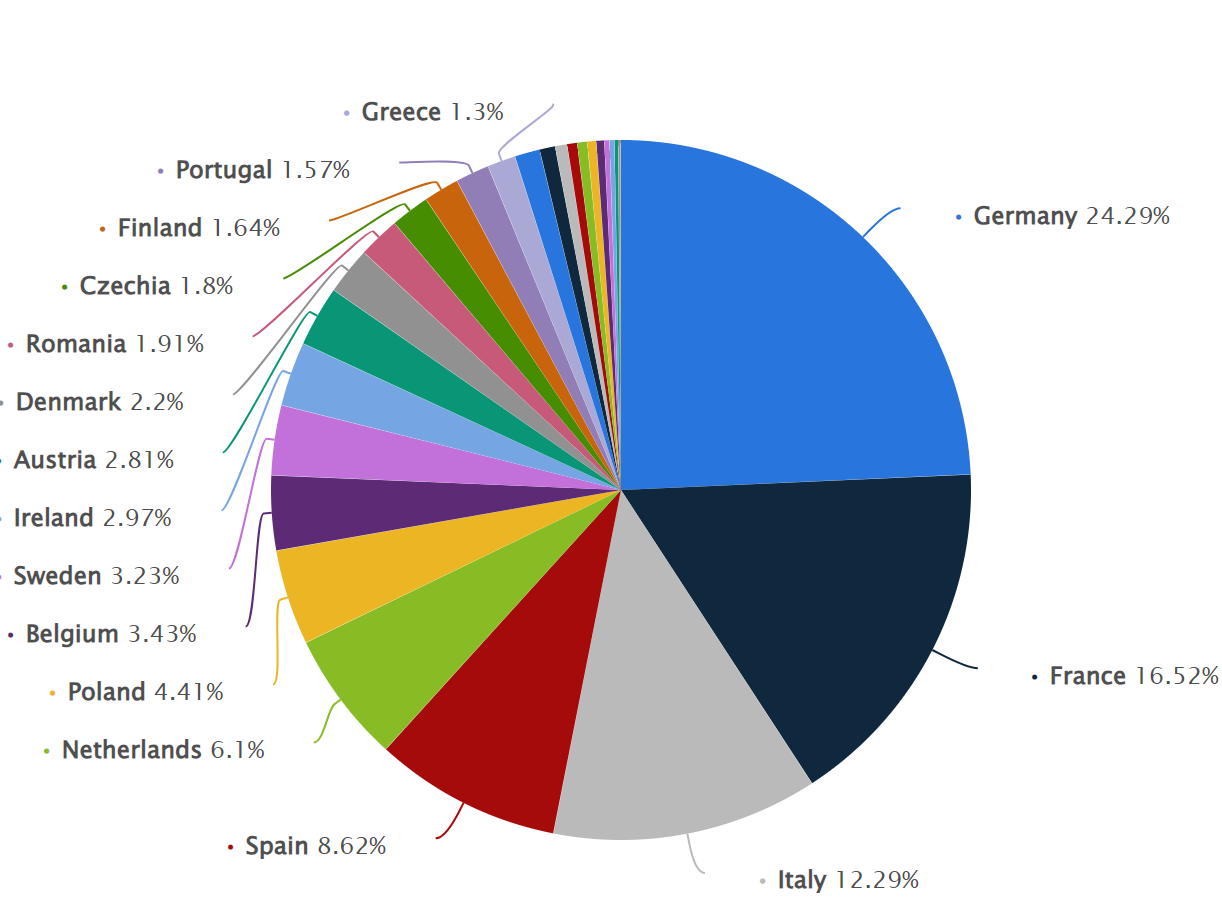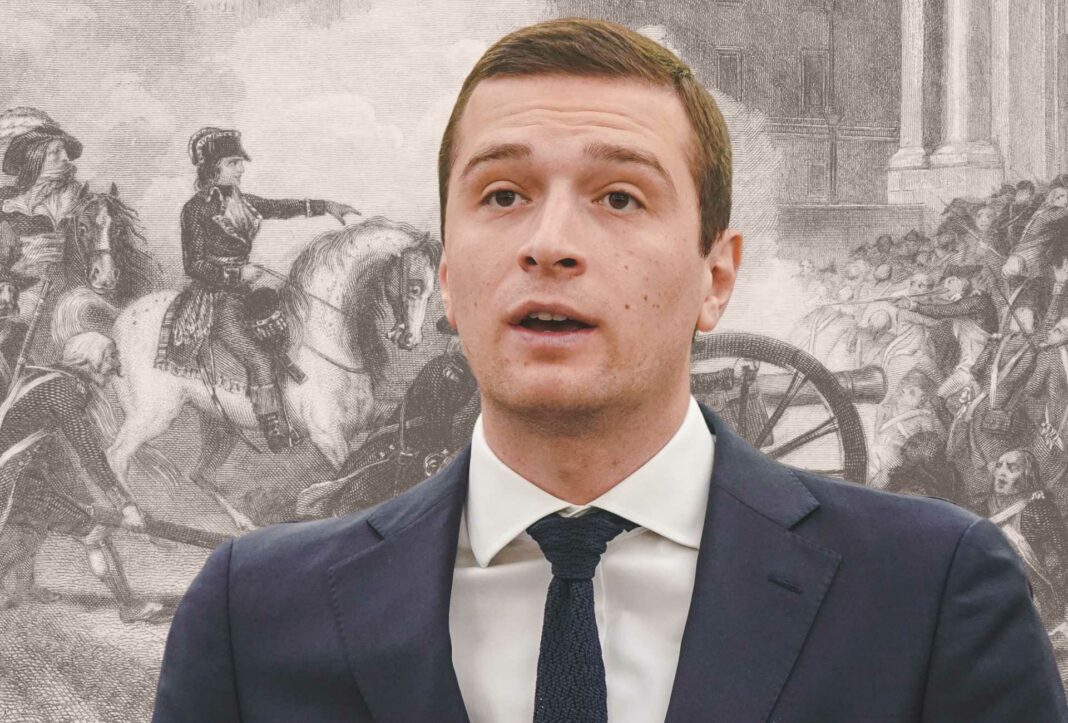An IMGW Report
France stands at a crossroads as it prepares for pivotal parliamentary elections, where the possibility of a far-right government under Jordan Bardella’s National Rally (RN) party looms large. The implications of France’s political trajectory extend far beyond its borders, resonating deeply across Europe and the world, particularly in the context of immigration policies and broader economic strategies, including Investment Migration.
France’s significance within the European Union cannot be overstated. As the second-largest contributor to the EU’s GDP, its political decisions carry substantial weight. Alongside Germany and Italy, France forms a critical pillar of the EU economy, collectively contributing over half of the union’s economic output. This economic influence underscores why developments in French politics, especially under Bardella’s leadership, are closely watched by global markets and international policymakers.
Percentage share of the EU’s Gross Domestic Product (GDP) in 2023, by member state
In 2021, Germany’s contribution to the European Union budget was over 33 billion euros, making it the highest of any EU member state. France followed as the second-largest contributor with 26 billion euros, while Italy and Spain contributed 18 billion euros and 12.7 billion euros, respectively. Source: Statista 2024.

Economic Policies and Social Agenda
Bardella’s campaign centres on addressing France’s economic challenges and social anxieties. Promises such as significant tax cuts on fuel, gas, and electricity aim to alleviate the cost of living crisis, resonating with voters grappling with economic insecurity. His proposals include tax breaks for companies that increase wages for low- and medium-income earners, although critics question their fiscal feasibility.
To fund these initiatives, Bardella proposes cuts to immigration-related expenditures and closing tax loopholes, underlining his prioritisation of national economic interests.
Immigration and Security
A cornerstone of Bardella’s platform is a robust stance on immigration and law enforcement. He advocates for abolishing birthright citizenship for long-term residents aged 11 to 18 and restricting certain state jobs to French citizens, emphasising a nationalist approach to security and sovereignty.
Foreign Policy and European Relations
Bardella seeks to reassure European partners about his foreign policy approach, aiming to renegotiate EU rules to better serve French interests. Despite historical affiliations with Russia, Bardella promises vigilance against Russian threats and continued support for Ukraine, highlighting his stance on European security and global diplomacy.
Social and Cultural Policies
Beyond economics, Bardella’s campaign includes cultural reforms aimed at reinforcing national identity and discipline in schools. Proposals such as banning mobile phones in classrooms reflect his agenda to restore order and discipline in educational settings.
Challenges and Controversies
Despite efforts to project a moderate image, concerns persist about RN’s potential impact on civil liberties and minority rights. Critics warn of constitutional conflicts over proposed citizenship policies, raising questions about democratic norms under a far-right government.
Electoral Landscape and International Reaction
Polls indicate a competitive race, with RN leading over Macron’s centrist alliance and left-wing coalitions. International observers, wary of RN’s rise, fear potential policy shifts that could reshape France’s role within the EU and its global standing.
In conclusion, Jordan Bardella’s leadership represents a departure from France’s political norms, potentially ushering in transformative changes with implications for immigration policies, economic strategies, and international relations. As France heads to the polls, the world watches closely, recognising the profound impact of these elections on European unity and global dynamics.





